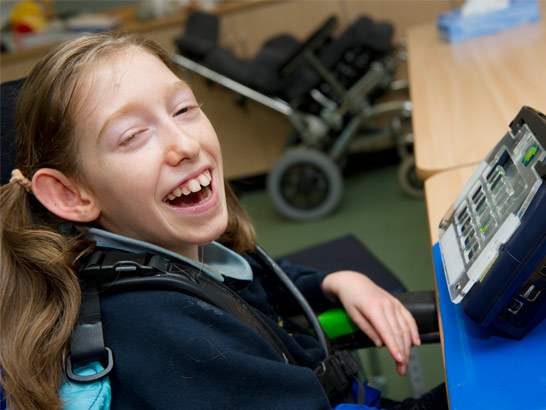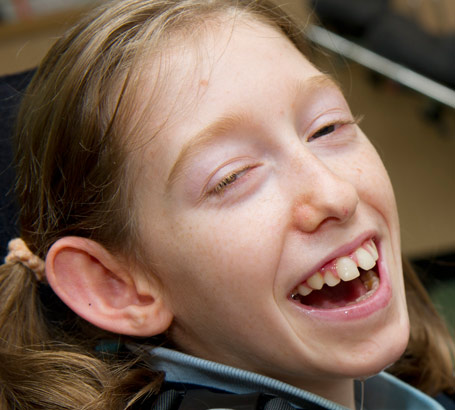
The outcomes of education should not simply be academic progress, e.g. through the p-scales. A major aim of education should also be to improve the quality of pupils' lives.

There are aspects of improving the quality of a child's life that are not related to learning new skills.
For example:
- A child's emotional well-being may have more to do with the skills of those working with them, than to do with the skills the child has
- A child's ability to communicate may depend on the provision of specialist resources, e.g. switches or more complex communication aids.
In both these examples, quality of life can be improved, not by the child developing new skills, but by changing the situation that they are in.
This approach reflects a social, rather than an individual, model of disability.
Sophia is a child with PMLD. She spends four days a week in a special school and one day in a mainstream school.
Watch the video clip of part of Sophia's review meeting. The meeting is reviewing Sophia's Statement and discussing whether the balance of days that Sophia spends in special and mainstream school should be adjusted.
What aspects of the Sophia's quality of life are discussed in this part of the meeting?
The group discusses the following considerations, which may have an impact on the quality of Sophia's life:
- Sophia's need to have physiotherapy, which will increase her physical well-being
- The importance of Sophia being able to continue with horse-riding, which will affect her physical well-being, emotional well-being, interpersonal relationships, social inclusion and personal development
- Sophia's access to specialist resources, teaching and care, which could affect the quality of her life in many areas - in this case staff from the mainstream school do not yet feel confident to offer Sophia the specialist input that she needs, and
- Sophia's need to be part of the peer group that she will grow up alongside - in particular, opportunities for interpersonal relationships and social inclusion.

The purpose of a review for a child with PMLD should be to look at quality of life. The child's progress in relation to P level or national curriculum targets may be a factor that affects quality of life but it is a means to an end, not the end itself. A broader focus on quality of life encourages review meetings to consider the child's feelings of well-being, their positive social involvement and the opportunities they have to achieve their personal potential.
